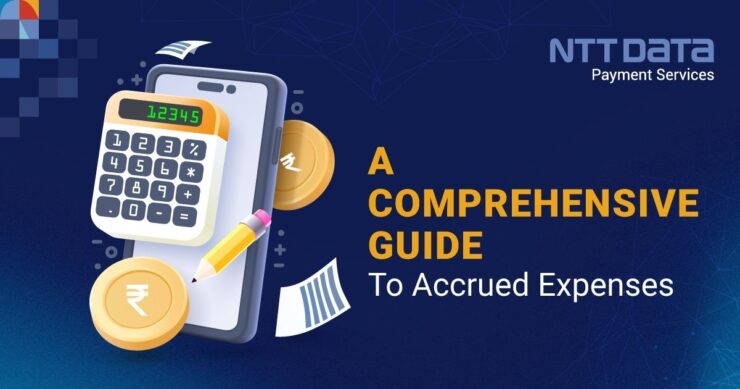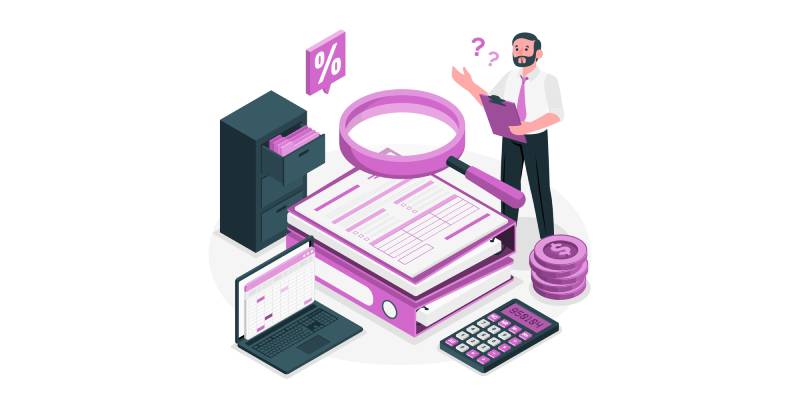
Table of Contents
Accrued expenses are liabilities that arise when a business incurs expenses but hasn’t made the corresponding payment yet. This comprehensive guide to accrued expenses provides an overview, significance for businesses, and how to manage them effectively.
Let’s explore the importance of accurate accounting for accrued expenses to ensure financial statements that reflect the true financial position of the business.
Guide To Accrued Expenses Eor Businesses
Accrued expenses are a fundamental aspect of financial management for businesses. Understanding and properly accounting for accrued expenses is crucial for accurate financial reporting and decision-making. Accrued expenses are vital for recognising liabilities that have been incurred but not yet paid.
What Are Accrued Expenses?

Accrued expenses refer to expenses incurred by a business that is yet to be paid. These expenses are recorded as liabilities in the accounting books, even though payment has not been made. Accrued expenses typically arise when a service or product has been received, but the associated payment is delayed or will be made in the future.
You have to take your Accrued expenses into consideration before calculating your gross profit.
Examples of Accrued Expenses
Common examples of accrued expenses include:
1. Utilities: If a business uses utilities like electricity, water, or gas, the service is provided before the payment due date. Therefore, the expense is accrued until it is paid.
2. Salaries and Wages: When employees provide their services during a pay period, but the payment for that period will be made at a later date, the accrued expense is recorded.
3. Rent: Rent expenses are often paid in advance or arrears. In the case of prepayment or delayed payment, the unpaid portion becomes an accrued expense.
4. Taxes: Businesses may accrue taxes, such as income tax or property tax, as these obligations accumulate over time, even if the payment date is in the future.
You can automatically pay your accrued expenses by using automatic payment systems that automatically send money to your vendors based on the credit period.
Recent Web Stories
Accounting & Managing Accrued Expenses
To properly account for accrued expenses, businesses follow the accrual accounting method.
Here’s a step-by-step guide:
1. Identify Accrued Expenses: Determine the expenses incurred but not paid during a specific accounting period.
2. Record the Accrual: Debit the expense account and credit the accrued expense account. This recognises the expense and creates a liability on the balance sheet.
3. Adjust Entries: At the end of the accounting period, adjust the accounts by reversing the accrued expense entry and recording the actual payment. Debit the accrued expense account and credit the cash or accounts payable account.
To effectively manage accrued expenses,
Here’s a step-by-step guide:
1. Timely Recognition: Ensure that accrued expenses are recorded promptly and accurately to reflect the actual financial obligations of the business.
2. Accurate Estimations: Accrued expenses may require estimation, especially when the exact amount is unknown. Use historical data and industry benchmarks to make reasonable estimates.
3. Regular Reconciliation: Reconcile accrued expenses regularly with the actual payments to identify any discrepancies and adjust the accounts accordingly.
4. Cash Flow Projections: Forecast and monitor cash flow to anticipate upcoming accrued expenses and ensure sufficient funds are available to meet financial obligations.
You can also follow cash-based accounting for financial management.
| Did you Know? The concept of accrual accounting includes recording accrued expenses and dates back to ancient civilisations such as the Egyptians and the Romans. While their methods were not as sophisticated as modern accounting practices, they understood the importance of recognising expenses as they occurred, even if payment was deferred to a later date. |
Accounting Made Simple With NTT DATA Payment Services
With NTT DATA Payment Services, You can make all your accrued payments seamless. Access PCI DSS 3.2.1V, a 256-bit encrypted payment gateway for your digital wallet. This keeps your information security bulletproof and makes your transactions limitless and quicker.
NTT DATA Payment Services offers a complete payment solution to advance your offline and online businesses from,
- Payment Gateway India
- POS machines
- IVR payments
- Mobile applications, and
- Bharat QR Scan and Pay
We ensure maximum comfort, convenience, and safety for all your payments.
Significance of Accrued Expenses
Accrued expenses play a significant role in financial reporting and decision-making for businesses. Here’s why they are important:
1. Accurate Financial Statements: Properly accounting for accrued expenses ensures that financial statements accurately reflect the expenses incurred during a specific period, representing the business’s financial position.
2. Cash Flow Management: Accrued expenses help businesses anticipate their future cash outflows, allowing them to manage their cash flow effectively. This information is vital for budgeting and ensuring that there are sufficient funds to meet financial obligations.
3. Performance Evaluation: Accrued expenses allow businesses to analyse their performance accurately by matching expenses with the period in which they were incurred. This provides a more realistic assessment of profitability and helps make informed business decisions.
Mastering Accrued Expenses
Accrued expenses are an essential component of financial management for businesses. Properly accounting for accrued expenses allows for accurate financial reporting, effective cash flow management, and informed decision-making.
By following the accrual accounting method and implementing sound management practices, businesses can successfully navigate accrued expenses and maintain financial stability. Remember, proactive management of accrued expenses contributes to a reliable financial position for your business.
| Also, you can get frequent updates on nttdatapayments Instagram page. |
Frequently Asked Questions (FAQs)
- How do people prepare for accrued expenses?
Identify the accrued expenses that have to be paid. Calculate the accrual amount by the expense rate and the days it must be paid. Create journal entries to record the accrued expenses. Incorporate accrued expenses into budgeting and cash flow management.
- How are accrued expenses recorded?
Accrued expenses are recorded in an income statement with respect to the balance sheet. These are usually current liabilities on the balance sheet as they have a due date which is to be paid.
- What are the three basic accrued expenses?
The three basic accrued expenses are:
- Utilities are used, but invoices are yet to be paid
- Wages yet to be paid to employees
- Goods and services consumed whose invoices are yet to receive
- What are accrued expenses?
Accrued expenses are liabilities that arise when a business incurs expenses but hasn’t made the corresponding payment yet.
- What are some examples of accrued expenses?
Some common examples of accrued expenses are
- Wage expenses.
- Payments owed to contractors and vendors.
- Government taxes.
- Property rental costs.
- Utility expenses.







